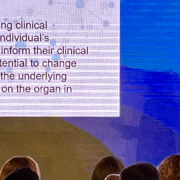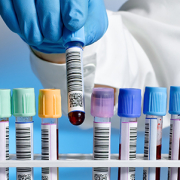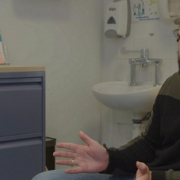First results returned from NHS cancer blood test
Two-in-three patients with suspected cancer symptoms could receive an early diagnosis from a new blood test
A 2021 study has published promising results that show the effectiveness of a non-invasive blood test in the early detection and diagnosis of cancer. The test, which was trialled by the University of Oxford with support from its developers, GRAIL, correctly identified 60% of patients who were diagnosed with cancer, and accurately predicted its origin in 85% of those cases.
How does the test work?
When cells die, they can shed fragments of DNA into the blood stream. Liquid biopsies are non-invasive tests that look for cell-free cancer DNA in a person’s blood. The tests use a blood sample to look at the pattern of markers on the cell-free DNA that are associated with cancer.
The Galleri test is a liquid biopsy made by US-based biotechnology company GRAIL that aims to detect more than 50 different types of cancer. GRAIL has partnered with the NHS to run pilot schemes, evaluating different applications of the test in cancer diagnosis and screening.
There have been two separate pilot programmes testing Galleri within the NHS. The SYMPLIFY trial, which is the focus of this article, tested Galleri’s usefulness as a diagnostic aid in 6,000 patients with suspected cancer. Additionally, a larger NHS-Galleri trial is evaluating Galleri as a screening tool for early cancer detection in 140,000 people who do not have symptoms.
The SYMPLIFY study
The SYMPLIFY study recruited patients who had been sent to a rapid referral programme by GPs because they had symptoms that could indicate cancer. Those who chose to participate gave a blood sample, and consented to the researchers checking their medical records later to see if they had received a cancer diagnosis and, if so, what type. They received the usual tests and treatments that they would have had, regardless of participation in the trial.
Recruitment began in July 2021, and over 6,000 patients from 13 NHS trusts in England and 19 hospitals in Wales, took part. The results were announced at the American Society of Clinical Oncology conference in June 2023.
Study leader, Dr Brian Nicholson said, “Most patients diagnosed with cancer first see a primary care physician for the investigation of symptoms suggestive of cancer, like weight loss, anaemia, or abdominal pain, which can be complex as there are multiple potential causes. New tools that can both expedite cancer diagnosis and potentially avoid invasive and costly investigations are needed to more accurately triage patients who present with non-specific cancer symptoms.”
The results of the test were promising, with cancer having been identified in 66% of the patients who were subsequently diagnosed, with a false positive rate below 2%. More than 47 of the cancers detected by Galleri also lack recommended screening in the UK at the time of writing, further highlighting the impact that this test could have for patients.
GRAIL will use the findings from the trial to optimise a version of the test for use in patients with suspected cancer.









